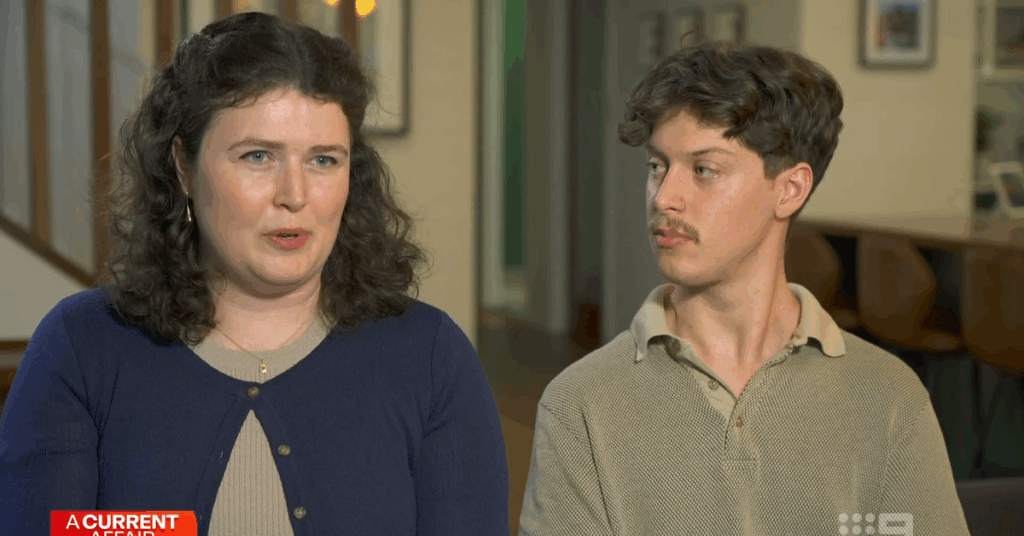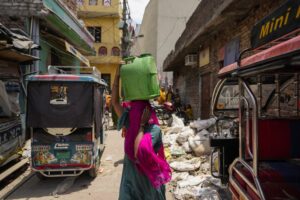
Lyndal Bubke, who grew up believing she had only one sibling, recently uncovered a startling truth through an online ancestry test: she has 77 siblings, and the number could be even higher. Bubke, an IVF baby conceived with the help of a sperm donor at the Queensland Fertility Group, is now calling for stricter regulations in the sperm donation industry.
“The donor donated 325 times, and they kept using that sperm for years and years,” Bubke revealed in an interview with A Current Affair. She estimates that the actual number of her siblings could range between 250 and 350, as the sperm was distributed across different clinics.
The Growing Concerns in Assisted Reproductive Technologies
Bubke’s case is not isolated. It highlights broader issues within the assisted reproductive technology (ART) sector, which is responsible for the conception of one in ten Australian children. Despite the prevalence of ART, there are no national laws or independent government agencies overseeing fertility clinics in Australia. This regulatory gap has led to significant discrepancies and errors, as seen in Bubke’s case.
Current guidelines vary by state and territory, and there is no national mandate requiring donors to prove their identity or health status. Additionally, there are no national limits on the number of times a donor’s sperm can be used, leading to potential ethical and social complications.
Personal Stories Highlight Systemic Flaws
Anastasia Gunn, another parent who used the Queensland Fertility Group, faced her own challenges. She and her partner discovered through DNA testing that their two younger sons, who developed a genetic condition, were conceived with different sperm than their eldest son. This revelation led them to seek intervention from the Queensland Health Ombudsman, who recommended that the fertility group disclose all relevant health information and contact other affected families. However, the group has yet to comply.
Similarly, Katherine, another donor-conceived individual, uncovered that her biological father used multiple aliases to donate sperm across various states. “There are confirmed 58 siblings so far,” Katherine shared. “But if he’s used all seven fake names at the 10 locations, that could be 700 siblings.”
Calls for Legislative Reform
These personal stories underscore the urgent need for national legislation to prevent similar incidents. Federal Health Minister Mark Butler recently expressed his willingness to consider taking over regulation from the industry itself. “I am very keen to look at proposals to take over regulation from the industry itself. I think self-regulation isn’t working, and I don’t think it’s inspiring the confidence that parents need,” Butler stated.
Queensland Fertility Group (QFG) expresses deep empathy for the Gunn family and Ms Bubke. We empathise with the distress they are experiencing and take their concerns seriously.
QFG acknowledged that these historical cases occurred over a decade ago, relating to sperm donated over twenty years ago. They emphasized that practices such as anonymous donation and single witnessing have been replaced by more rigorous protocols, including mandatory double witnessing and electronic tracking systems.
QFG strongly advocates for national reform including a compulsory national donor conception registry, consistent national family limit, and an independent oversight body for the IVF sector.
Looking Forward: The Path to Reform
The Queensland Health Department has reiterated the importance of holding the ART industry to high standards. “Queensland’s legislation to regulate the ART industry will provide greater transparency and stronger protection for users and donor-conceived people,” a spokesperson stated.
While the implementation date for parts of the Act has been revised, the commitment to prioritizing the health and wellbeing of ART service users remains steadfast. The department is working closely with providers to ensure rigorous safeguards are in place.
As the debate over sperm donor regulations continues, the stories of Lyndal Bubke, Anastasia Gunn, and others serve as poignant reminders of the need for comprehensive national oversight in the fertility sector. The push for reform is not just about preventing future errors but also about restoring confidence and trust in a system that plays a crucial role in family creation.







